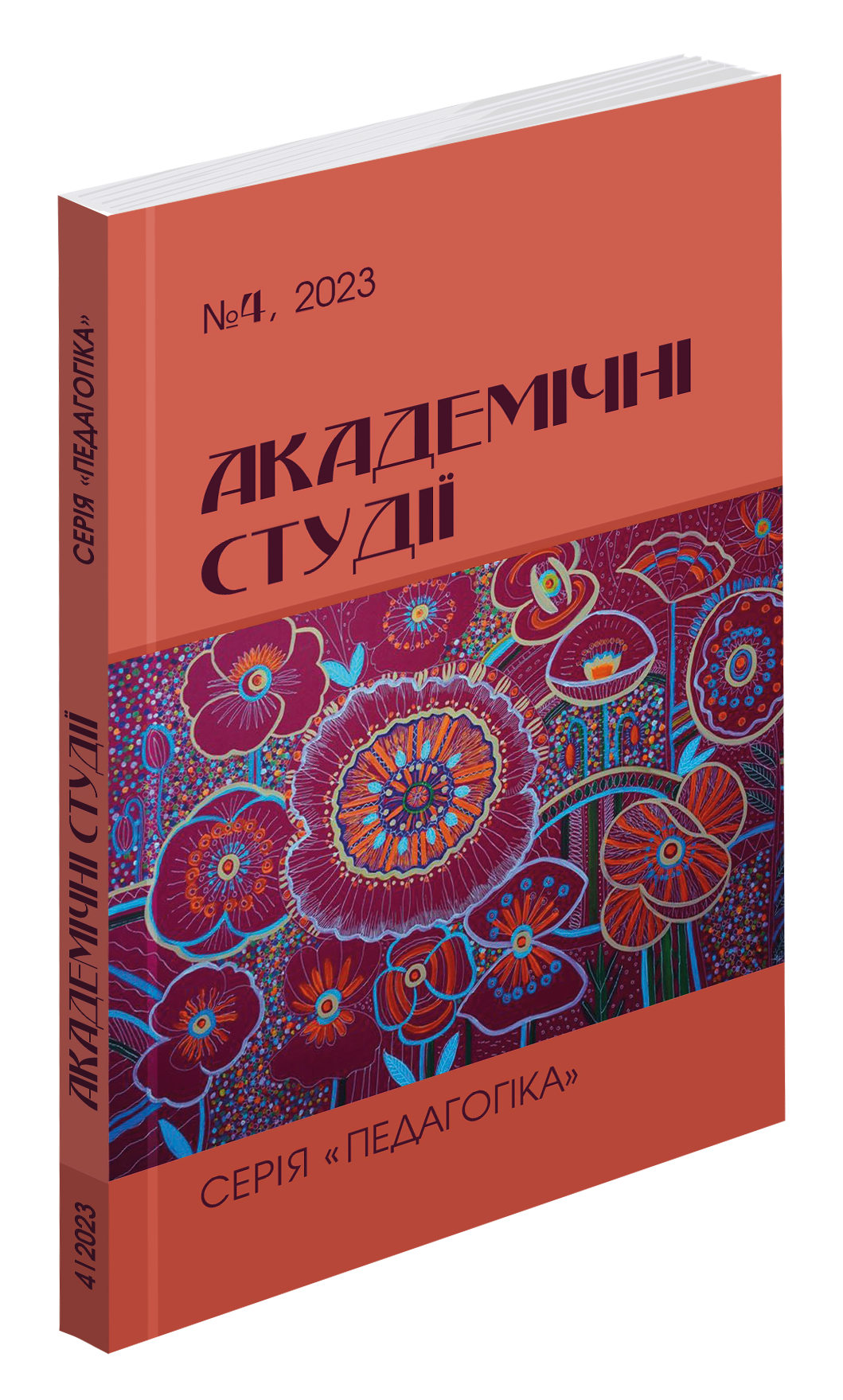Abstract
The article focuses on a current scientific problem caused by changes in the theoretical and practical approach to education of younger schoolchildren. The leading ideas of the research are determined by the methodological potential that affects the formation of key and subject competencies in primary school pupils. In the process of implementing all the content lines of the subject “Literary reading”, in addition to mastering important competences, pupils of junior grades gain some experience of applying them in various types of educational and cognitive activities, individual practical experience. Since primary school teachers are multi-subjects, the reality of implementing the innovative technology of integrated learning will be successful. The article focuses on the implementation of integrated relationships, because practicing teachers often apply the convergence combining certain materials from the lessons of the Ukrainian language, literary reading, visual arts, natural science, mathematics. Since the combination of information from several subjects contributes to the activation of children’s cognitive activity, the mastery of a significant amount of educational material, the achievement of the integrity of knowledge and, most importantly, stimulates interest in learning and a sense of connection with life, this allows the primary school teacher to expand the interdisciplinary relationships of the subjects being studied by younger schoolchildren. The importance of education content and form integration is emphasized by A. Aleksiuk, O. Biliayev, I. Bolshakova, L. Varzatska, T. Donchenko, M. Danylov, Yu. Koliagin, V. Palamarchuk, O. Savchenko, N. Svetlovska, G. Selevko, O. Marynovska, M. Fitsula and others. However, expanding the content of interdisciplinary relationships and integration of learning serves to study new components of the researched topic. The article emphasizes that modern scientists propose to distinguish the interpretation of the concepts of “integrated learning” and “interdisciplinary relationships” that until recently, were interpreted as similar phenomena in the scientific literature. Following O. Savchenko, it was asserted that the content of lessons using integrated learning differs from lessons with interdisciplinary relationships since these are different didactic concepts. The peculiarity of integrated lessons is that they can be conducted on the basis of intra-subject, inter-subject and inter-system integration: combined two-, three-, foursubject, lesson-excursion, lesson-travel, lesson-immersion, lesson-hike, etc. Such lessons often serve as a continuation of the parallel study of related subjects within one lesson. On the basis of the defined theoretical foundations, various options for the use of integrated and interdisciplinary relationships in native language lessons at the New Ukrainian School were proposed.
References
Савченко О. Дидактика початкової освіти. Київ: Грамота, 2012. 373 с.
Селевко Г.К. Модели интеграции содержания учебных дисциплин. Энциклопедия образовательных технологий: в 2-х т. М.: НИИ образовательных технологий, 2006. Т. 1. С. 479−488.
Савченко О. Міжпредметні зв’язки як ресурс реалізації компетентнісного підходу на уроках літературного читання. Український педагогічний журнал, 2017. № 2. С. 48–57.
Бех І. Інтеграція як освітня перспектива. Початкова школа, 2002. № 5. С. 5–6.
Короткий термінологічний словник з педагогіки / укл. С.Г. Мельничук. Кіровоград, 2004. 34 с.
Нова українська школа: порадник для вчителя. Київ: Видавничий дім «Плеяди», 2017. 206 с.
Костюк Н.Т. Об’єктивна зумовленість і діалектика інтеграції сучасного наукового знання. Київ: Вища школа, 1998. 327 с.
Мариновська О. Інтегроване навчання: технологічний аспект. Рідна школа, 2014. № 4–5. С. 33.
Большакова І. Особливості реалізації міжпредметної інтеграції змісту навчання на уроках у початковій школі. URL: https://ippo.kubg.edu.ua/wp-content/uploads/2014/05/Большакова-ІО.pdf.
Нова українська школа. Міністерство освіти і науки України: офіційний сайт. URL: https://mon.gov.ua/ua/tag/nova-ukrainska-shkola.
Літературне читання: підручник для 4 класу закл. заг. сер. Освіти / О.Я. Савченко. Київ: Освіта, 2019. 192 с.
Я досліджую світ: підручник інтегрованого курсу для 3 класу (у 2-ох частинах) / О. Волощенко, О. Козак, Г. Остапенко. Київ: Світоч, 2020. 170 с.
Українська мова: підручник для 3 класу / М. С. Вашуленко, О. І. Мельничайко, Н. А Васильківська. Київ: Освіта, 2019. 192 с.
